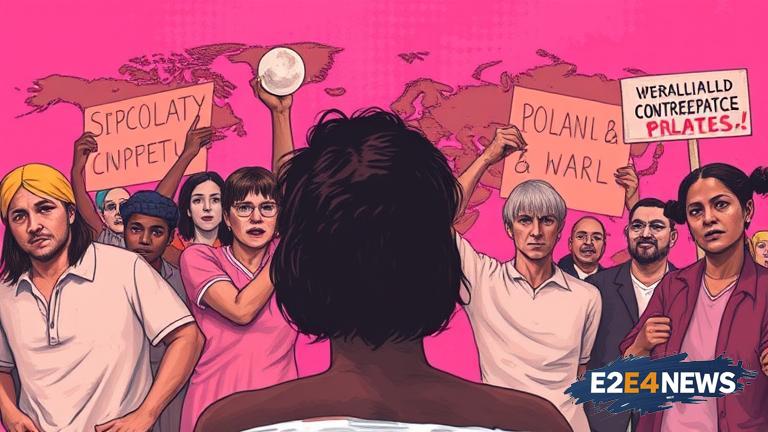The controversy surrounding the US government’s decision to destroy contraceptives intended for Africa has reached a boiling point, with reproductive rights advocates and international organizations launching a fierce battle to stop the destruction of these life-saving supplies. The US Agency for International Development (USAID) has been at the center of the controversy, with critics accusing the agency of prioritizing ideological agendas over the health and well-being of women and girls in Africa. The contraceptives in question were manufactured by European companies and were intended for distribution in several African countries, where access to reproductive healthcare is already severely limited. However, the US government has deemed the contraceptives to be ‘abortion-related’, citing a decades-old law that prohibits the use of US funds for programs that provide or promote abortion services. Reproductive rights advocates argue that this decision is not only misguided but also dangerous, as it will exacerbate the already dire shortage of contraceptives in Africa and put the lives of countless women and girls at risk. The battle to stop the destruction of the contraceptives is being fought on multiple fronts, with advocacy groups and international organizations launching campaigns to raise awareness and mobilize public support. In Belgium and France, where the contraceptives were manufactured, lawmakers and civil society organizations are pushing for the European Union to take a stronger stance against the US policy. The European Parliament has already passed a resolution condemning the US decision and calling on the EU to increase its support for reproductive healthcare programs in Africa. Meanwhile, reproductive rights advocates in the US are working to build a coalition of lawmakers and organizations to pressure the Biden administration to reverse the decision. The controversy has also sparked a wider debate about the role of ideology in shaping US foreign policy, with critics arguing that the decision to destroy the contraceptives is a prime example of how ideological agendas can trump humanitarian concerns. As the battle to stop the destruction of the contraceptives continues, reproductive rights advocates are warning that the consequences of inaction will be devastating, with millions of women and girls in Africa facing increased risks of unintended pregnancy, maternal mortality, and HIV transmission. The US government’s decision has also been criticized by international health organizations, including the World Health Organization (WHO) and the United Nations Population Fund (UNFPA), which have warned that the destruction of the contraceptives will undermine efforts to achieve the Sustainable Development Goals (SDGs) and improve health outcomes in Africa. The controversy has also highlighted the need for increased funding and support for reproductive healthcare programs in Africa, where access to contraceptives and other essential health services is often limited. In response to the crisis, several European countries have pledged to increase their support for reproductive healthcare programs in Africa, with some governments committing to provide additional funding and resources to help bridge the gap left by the US. However, reproductive rights advocates argue that more needs to be done to address the root causes of the crisis, including the lack of access to education and economic opportunities for women and girls in Africa. The battle to stop the destruction of the contraceptives is a complex and multifaceted issue, involving not only reproductive rights advocates but also lawmakers, international organizations, and governments around the world. As the controversy continues to unfold, one thing is clear: the fate of millions of women and girls in Africa hangs in the balance, and the international community must come together to ensure that they have access to the reproductive healthcare services they need to thrive. The US government’s decision to destroy the contraceptives has sparked widespread outrage and condemnation, with many critics arguing that the policy is not only misguided but also cruel. The controversy has also highlighted the need for increased transparency and accountability in US foreign policy, with critics arguing that the decision to destroy the contraceptives was made without adequate consultation or consideration of the potential consequences. As the international community continues to grapple with the implications of the US policy, reproductive rights advocates are warning that the consequences of inaction will be severe and far-reaching, with millions of women and girls in Africa facing increased risks of poverty, inequality, and poor health outcomes. The battle to stop the destruction of the contraceptives is a testament to the power of grassroots activism and international solidarity, with reproductive rights advocates and organizations around the world coming together to demand justice and equality for women and girls in Africa.
